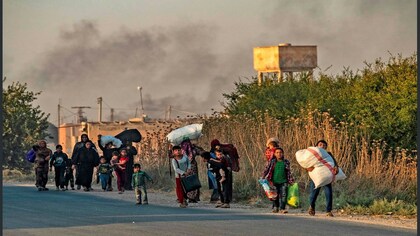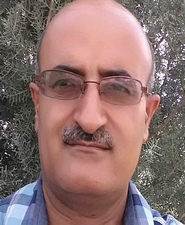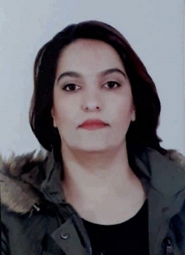Iran Tries to Gain Sway in Latin America
14:59 - 6 December 2011

An alleged plot by Iran to hire a hit man from a Mexican cartel has shed light on Iran\'s growing presence in Latin America and the difficulties that poses for Washington.
Long before October, when two officers from an elite Iranian military branch, the Al Qods force, were indicted for allegedly plotting to assassinate the Saudi Arabian ambassador to the U.S. in a Washington restaurant, Iran has been building a higher profile in the region.
Tehran has cultivated close ties with several leaders who share Iran\'s anti-American sentiment, including Venezuela\'s Hugo Chávez and Bolivia\'s Evo Morales, both of whom have called Iran a \"strategic ally.\" Iranian President Mahmoud Ahmadinejad has visited Venezuela four times and Bolivia three times, as well as President Daniel Ortega of Nicaragua and Luiz Inácio Lula da Silva, the former Brazilian leader.
In Venezuela, Iran says it has signed 70 joint venture deals valued at up to $17 billion in industries like energy, construction and fisheries, and including a factory to assemble cars and tractors under the brand name \"Veniran.\"
Iran has an additional $1 billion in joint venture deals with Bolivia, and last month, an Iranian parliamentary delegation visited there to advance health and development projects for $280 million.
Many of the bigger projects in Venezuela and Bolivia have yet to get off the drawing board. To date, Iran\'s total investment in Bolivia is less than $10 million, according to Bolivian government sources.
But there are signs of growing military and intelligence cooperation. Iran has almost doubled its number of diplomatic missions in Latin America to 11 in recent years by opening up embassies in Bolivia, Chile, Colombia, Nicaragua and Uruguay, says the State Department.
It has also sold drones and other military equipment to Venezuela, according to the Venezuelan Congress.
In May, Iranian defense minister Ahmad Vahidi visited Bolivia for a military ceremony presided by Mr. Morales. The visit sparked a diplomatic incident because Gen. Vahidi stands accused by the Argentine government of directing the 1994 truck bombing of a Jewish community center in Buenos Aires, which killed 85 people, and is also wanted by Interpol. At the time, Mr. Vahidi was a senior officer at Al Qods, which is a unit of the Islamic Revolutionary Guard Corps.
The Iranian government has long denied responsibility for the attack and said any allegations against Gen. Vahidi are a \"Zionist\" conspiracy.
Argentina tried to have Interpol arrest Gen. Vahidi in Bolivia, but he was protected by diplomatic immunity.
Mr. Morales publicly apologized to Argentina and said that inviting Mr. Vahidi had been a \"grave error.\" But relations continue apace. The recent visit by the Iranian parliamentary delegation to La Paz was in part aimed at paving the way for another visit next year by Mr. Ahmadinejad, according to the Venezuelan Congress.
Obama administration officials and U.S. diplomats say Iran is not a serious rival to U.S. influence in the hemisphere, but that the White House is closely watching Tehran for signs it wants to use Latin America as a staging ground for terror attacks. \"Our main concern is terrorist support,\" a senior diplomatic official said.
U.S. officials say they were sufficiently concerned about Iranian terror links to South America that they briefed Argentine officials in May about the alleged Iranian plot to kill the Saudi ambassador, for fear the Iranians might carry out similar attacks against U.S., Saudi or Israeli interests in Argentina and other Latin American nations.
\"Iran is looking to develop an ability to inflict damage on the U.S. in the event of an American or Israeli strike against its nuclear facilities or its military,\" said Douglas Farah, a security consultant who recently wrote a Defense Department study on Iran\'s growing Latin American presence.
Former Defense Secretary Robert Gates told a meeting of Latin American defense chiefs in October 2010, \"Caution should be exercised in how relations are developed with Iran and in knowing what the Iranians are seeking.\"
A Pentagon report last year warned about an expanded presence of Al Qods in Latin America. A declassified Pentagon analysis on Iran\'s military power released to the U.S. Congress in April 2010 says Al Qods is \"well established in the Middle East and North Africa and in recent years have witnessed an increased presence in Latin America, particularly Venezuela.\"
Venezuela purchased 10 Iranian Mojaher 2 drones in a $29 million deal with a company owned by the Revolutionary Guard in 2007 that included training, advisers and an assembly plant, according to documents presented by the Defense Ministry to Venezuela\'s Congress in March and made public by Venezuela\'s El Nacional newspaper. Venezuela\'s Ministry of Information didn\'t respond to requests to comment.
Other Venezuelan military projects with Iran include $23 million for equipment upgrades and a $3 million explosives factory, the Venezuelan government documents showed.
Venezuela\'s defense contractor Cavim tried to sell 18,000 Iranian HK2002 automatic rifles to the Uruguayan armed forces in 2007, according to an inquiry by Uruguay\'s Congress that year made public by Uruguayan newspapers.
A Uruguayan navy ship ready to load Iranian munitions in Venezuela was ordered to abort its mission, according to both the congressman and the Uruguayan military.
The deal fell through after a Uruguayan Opposition congressman, Javier Garcia, denounced it as an attempt to circumvent an international arms embargo against Iran. Uruguayan defense officials said the incident was the result of \"confusion,\" telling lawmakers that they considered an Iranian bid for weapons before the United Nations sanctions came into effect that same year.
Various European newspaper reports this year said Iran was planning to base medium range Shahab 3 missiles in Venezuela and that Mr. Chávez had leased military facilities to Tehran. Venezuela flatly denied the reports.
Obama administration officials say there is no evidence that either report is true.
In May, the Obama administration imposed mild sanctions on Venezuela\'s oil company PDVSA, following accusations by members of the U.S. Congress that PDVSA\'s dealings with the Iran\'s oil company Petropars, involving the joint management of some Venezuelan gas fields and the sale of refined gasoline products, violated U.S. sanctions on Iran. The sanctions on PDVSA fell short of blocking Venezuelan oil sales to the U.S. or restricting activities by the PDVSA\'s U.S. subsidiary, Citgo.
In 2008, the Bush administration blacklisted newly established branches of Iran\'s Export Development Bank in Venezuela and other Latin American countries, alleging that \"binational funds\" managed by the bank in Venezuela and Ecuador were being used to launder money to circumvent U.N. sanctions on Iran\'s nuclear program.
Venezuelan officials said the U.S. had no right to \"interfere in financial dealings between two countries who have maintained close relations since being founding members of .\"
There also have been persistent allegations of ties between the Chávez government and the Iran-backed Hezbollah, a Lebanon-based group listed as a terrorist organization by the U.S. A Lebanese-born Venezuelan diplomat, Ghazi Nasr al Din, was named in a U.S. Treasury Department investigation in 2008 as a \"facilitator and fundraiser\" for Hezbollah.
Mr. Al Din was serving as chargé d\'affairs at the Venezuelan Embassy in Damascus and director of political affairs at the embassy in Beirut, according to the investigation, made public by the Treasury Department\'s Office for Foreign Assets Control. The Treasury Department banned him as well as another Venezuelan-based Syrian businessman from conducting business in the U.S. or with U.S. citizens.
Venezuelan Foreign Minister Nicolas Maduro reacted angrily to the accusation at the time, saying that the \"real terrorists are in the White House.\" Mr. Al Din hasn\'t commented publicly on the allegations.
In 2009, Israel\'s ex-foreign minister Danny Ayalon accused Venezuela and Bolivia of supplying uranium to Iran, which lacks domestic sources of the radioactive mineral needed to make nuclear power and which Bolivia has in large quantities. Bolivia has 16 major uranium deposits, according to international mining surveys, including one conducted in 2006 by the Canadian company Mega Uranium Ltd.
A 2010 visit by Iran\'s mining and industry minister, Akbar Mehravani, stirred new speculation among opposition politicians and media in Bolivia about a possible uranium deal with Iran. Mr. Morales strongly denied the allegations, telling a news conference that \"In all my meetings with Ahmadinejad we have never discussed uranium.\"
Iran has tried to attract Latin American engineers to work in its nuclear projects through a scholarship program offered to highly qualified students selected in Bolivia, Cuba and Venezuela, say people who have participated in the program.
One Bolivian software engineer said that the program was mainly aimed at recruiting computer security specialists to help protect Iran\'s nuclear program from computer virus attacks by the U.S. and Israel.
By MARTIN AROSTEGUI, The Wall Street Journal
Long before October, when two officers from an elite Iranian military branch, the Al Qods force, were indicted for allegedly plotting to assassinate the Saudi Arabian ambassador to the U.S. in a Washington restaurant, Iran has been building a higher profile in the region.
Tehran has cultivated close ties with several leaders who share Iran\'s anti-American sentiment, including Venezuela\'s Hugo Chávez and Bolivia\'s Evo Morales, both of whom have called Iran a \"strategic ally.\" Iranian President Mahmoud Ahmadinejad has visited Venezuela four times and Bolivia three times, as well as President Daniel Ortega of Nicaragua and Luiz Inácio Lula da Silva, the former Brazilian leader.
In Venezuela, Iran says it has signed 70 joint venture deals valued at up to $17 billion in industries like energy, construction and fisheries, and including a factory to assemble cars and tractors under the brand name \"Veniran.\"
Iran has an additional $1 billion in joint venture deals with Bolivia, and last month, an Iranian parliamentary delegation visited there to advance health and development projects for $280 million.
Many of the bigger projects in Venezuela and Bolivia have yet to get off the drawing board. To date, Iran\'s total investment in Bolivia is less than $10 million, according to Bolivian government sources.
But there are signs of growing military and intelligence cooperation. Iran has almost doubled its number of diplomatic missions in Latin America to 11 in recent years by opening up embassies in Bolivia, Chile, Colombia, Nicaragua and Uruguay, says the State Department.
It has also sold drones and other military equipment to Venezuela, according to the Venezuelan Congress.
In May, Iranian defense minister Ahmad Vahidi visited Bolivia for a military ceremony presided by Mr. Morales. The visit sparked a diplomatic incident because Gen. Vahidi stands accused by the Argentine government of directing the 1994 truck bombing of a Jewish community center in Buenos Aires, which killed 85 people, and is also wanted by Interpol. At the time, Mr. Vahidi was a senior officer at Al Qods, which is a unit of the Islamic Revolutionary Guard Corps.
The Iranian government has long denied responsibility for the attack and said any allegations against Gen. Vahidi are a \"Zionist\" conspiracy.
Argentina tried to have Interpol arrest Gen. Vahidi in Bolivia, but he was protected by diplomatic immunity.
Mr. Morales publicly apologized to Argentina and said that inviting Mr. Vahidi had been a \"grave error.\" But relations continue apace. The recent visit by the Iranian parliamentary delegation to La Paz was in part aimed at paving the way for another visit next year by Mr. Ahmadinejad, according to the Venezuelan Congress.
Obama administration officials and U.S. diplomats say Iran is not a serious rival to U.S. influence in the hemisphere, but that the White House is closely watching Tehran for signs it wants to use Latin America as a staging ground for terror attacks. \"Our main concern is terrorist support,\" a senior diplomatic official said.
U.S. officials say they were sufficiently concerned about Iranian terror links to South America that they briefed Argentine officials in May about the alleged Iranian plot to kill the Saudi ambassador, for fear the Iranians might carry out similar attacks against U.S., Saudi or Israeli interests in Argentina and other Latin American nations.
\"Iran is looking to develop an ability to inflict damage on the U.S. in the event of an American or Israeli strike against its nuclear facilities or its military,\" said Douglas Farah, a security consultant who recently wrote a Defense Department study on Iran\'s growing Latin American presence.
Former Defense Secretary Robert Gates told a meeting of Latin American defense chiefs in October 2010, \"Caution should be exercised in how relations are developed with Iran and in knowing what the Iranians are seeking.\"
A Pentagon report last year warned about an expanded presence of Al Qods in Latin America. A declassified Pentagon analysis on Iran\'s military power released to the U.S. Congress in April 2010 says Al Qods is \"well established in the Middle East and North Africa and in recent years have witnessed an increased presence in Latin America, particularly Venezuela.\"
Venezuela purchased 10 Iranian Mojaher 2 drones in a $29 million deal with a company owned by the Revolutionary Guard in 2007 that included training, advisers and an assembly plant, according to documents presented by the Defense Ministry to Venezuela\'s Congress in March and made public by Venezuela\'s El Nacional newspaper. Venezuela\'s Ministry of Information didn\'t respond to requests to comment.
Other Venezuelan military projects with Iran include $23 million for equipment upgrades and a $3 million explosives factory, the Venezuelan government documents showed.
Venezuela\'s defense contractor Cavim tried to sell 18,000 Iranian HK2002 automatic rifles to the Uruguayan armed forces in 2007, according to an inquiry by Uruguay\'s Congress that year made public by Uruguayan newspapers.
A Uruguayan navy ship ready to load Iranian munitions in Venezuela was ordered to abort its mission, according to both the congressman and the Uruguayan military.
The deal fell through after a Uruguayan Opposition congressman, Javier Garcia, denounced it as an attempt to circumvent an international arms embargo against Iran. Uruguayan defense officials said the incident was the result of \"confusion,\" telling lawmakers that they considered an Iranian bid for weapons before the United Nations sanctions came into effect that same year.
Various European newspaper reports this year said Iran was planning to base medium range Shahab 3 missiles in Venezuela and that Mr. Chávez had leased military facilities to Tehran. Venezuela flatly denied the reports.
Obama administration officials say there is no evidence that either report is true.
In May, the Obama administration imposed mild sanctions on Venezuela\'s oil company PDVSA, following accusations by members of the U.S. Congress that PDVSA\'s dealings with the Iran\'s oil company Petropars, involving the joint management of some Venezuelan gas fields and the sale of refined gasoline products, violated U.S. sanctions on Iran. The sanctions on PDVSA fell short of blocking Venezuelan oil sales to the U.S. or restricting activities by the PDVSA\'s U.S. subsidiary, Citgo.
In 2008, the Bush administration blacklisted newly established branches of Iran\'s Export Development Bank in Venezuela and other Latin American countries, alleging that \"binational funds\" managed by the bank in Venezuela and Ecuador were being used to launder money to circumvent U.N. sanctions on Iran\'s nuclear program.
Venezuelan officials said the U.S. had no right to \"interfere in financial dealings between two countries who have maintained close relations since being founding members of .\"
There also have been persistent allegations of ties between the Chávez government and the Iran-backed Hezbollah, a Lebanon-based group listed as a terrorist organization by the U.S. A Lebanese-born Venezuelan diplomat, Ghazi Nasr al Din, was named in a U.S. Treasury Department investigation in 2008 as a \"facilitator and fundraiser\" for Hezbollah.
Mr. Al Din was serving as chargé d\'affairs at the Venezuelan Embassy in Damascus and director of political affairs at the embassy in Beirut, according to the investigation, made public by the Treasury Department\'s Office for Foreign Assets Control. The Treasury Department banned him as well as another Venezuelan-based Syrian businessman from conducting business in the U.S. or with U.S. citizens.
Venezuelan Foreign Minister Nicolas Maduro reacted angrily to the accusation at the time, saying that the \"real terrorists are in the White House.\" Mr. Al Din hasn\'t commented publicly on the allegations.
In 2009, Israel\'s ex-foreign minister Danny Ayalon accused Venezuela and Bolivia of supplying uranium to Iran, which lacks domestic sources of the radioactive mineral needed to make nuclear power and which Bolivia has in large quantities. Bolivia has 16 major uranium deposits, according to international mining surveys, including one conducted in 2006 by the Canadian company Mega Uranium Ltd.
A 2010 visit by Iran\'s mining and industry minister, Akbar Mehravani, stirred new speculation among opposition politicians and media in Bolivia about a possible uranium deal with Iran. Mr. Morales strongly denied the allegations, telling a news conference that \"In all my meetings with Ahmadinejad we have never discussed uranium.\"
Iran has tried to attract Latin American engineers to work in its nuclear projects through a scholarship program offered to highly qualified students selected in Bolivia, Cuba and Venezuela, say people who have participated in the program.
One Bolivian software engineer said that the program was mainly aimed at recruiting computer security specialists to help protect Iran\'s nuclear program from computer virus attacks by the U.S. and Israel.
By MARTIN AROSTEGUI, The Wall Street Journal



